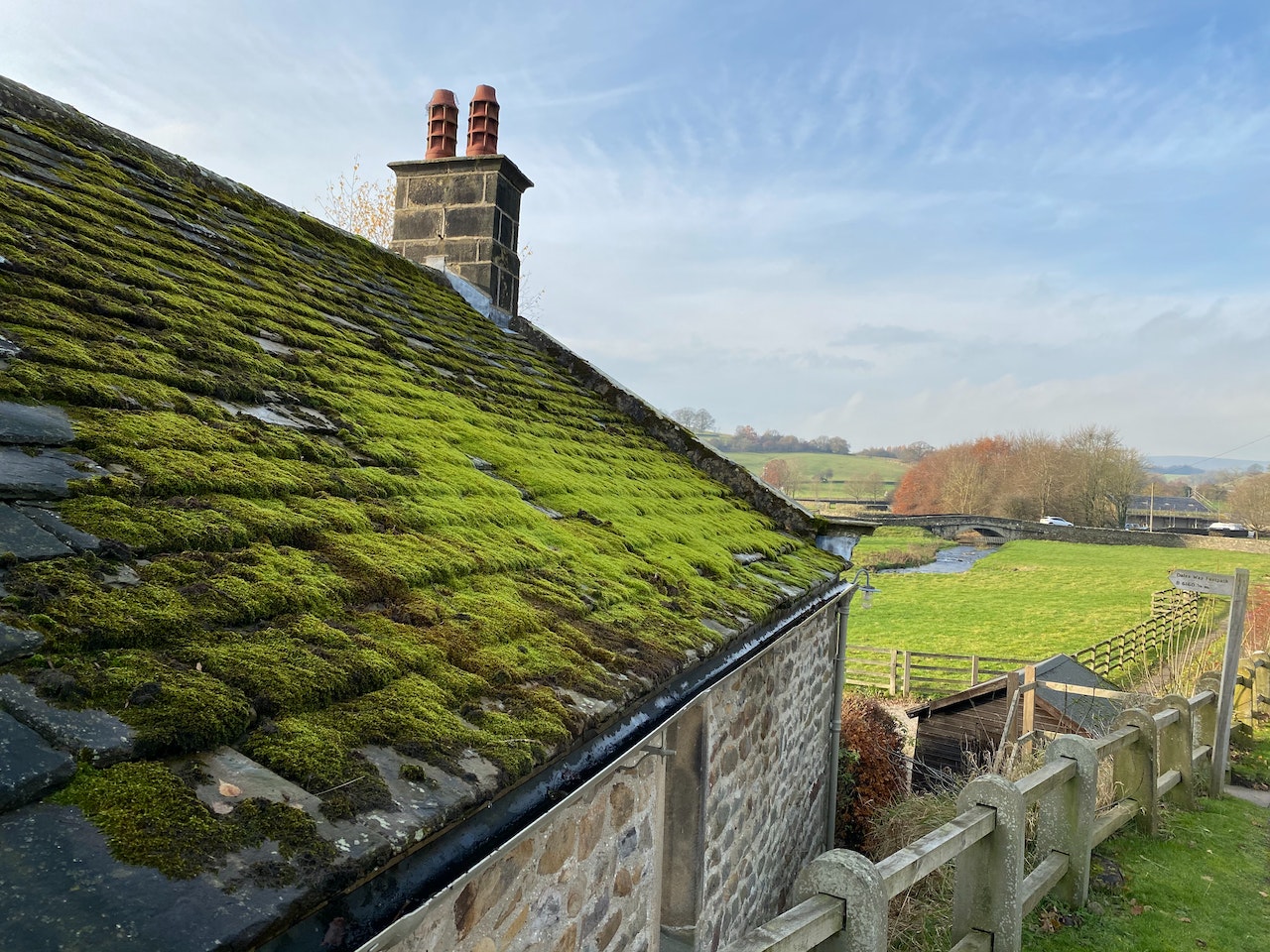Unless you live in Hobbiton, moss on your roof is unsightly! But did you know that it can also damage your shingles and roof structure? The good news is that several effective moss removers can help you eliminate this pesky problem.
This guide will address your top questions on choosing the best roof moss remover and share tips on preventing its future growth. However, before we dive into this issue, let's first address why moss develops.
Why Does Moss Grow on Roofs?
- Moisture: Moss thrives in moist environments, so excess water on your roof can create the perfect conditions for future growth.
- Shade: Moss also prefers shady areas, so if your roof is surrounded by trees or shaded by nearby buildings, it may become more vulnerable.
- Poor ventilation: If your roof doesn't have adequate ventilation, it can trap moisture and create the perfect environment for moss to take hold.
- Organic debris: If there are leaves, twigs, or other organic debris on your roof, it offers a bounty food source for moss.
- Dirty or dusty surfaces: Moss can grow more easily on dirty or dusty surfaces, so regular roof cleaning and maintenance can help prevent moss growth.
- Type of roofing material: Some roofing materials, such as cedar or asphalt shingles, are more prone to moss growth than others. If you have a roof made of one of these materials, you may need to take extra precautions to prevent moss growth.
Types of Moss Removers
Now that we've covered why moss grows on roofs, let's review the most common types of moss killers:
- Chemical-based: Uses ingredients like zinc or copper sulfate to kill moss. You typically apply the solution to the affected area and leave it on for a set time before rinsing it off.
- Pressure Washer: Blasts away the moss and any debris that may have accumulated on your roof.
- Natural and organic options: Consists of home-made remedies, such as vinegar and water or a mixture of baking soda and water.
Ultimately, the best method for removing moss will depend on your roof type and the severity of the moss growth. For example, asphalt shingles may require a different moss killer than a metal roof. Therefore, consider any potential damage caused by the moss killer, such as discoloration or corrosion.
It's always a good idea to consult a professional to clarify the best course of action for your roof.
Applying Your Moss Killers on Roof
After talking to a roofing expert, you may decide to apply a chemical-based roof moss remover or organic solution.
When using a chemical product, be sure to thoroughly read all manufacturer's instructions and wear protective gear to avoid injury or exposure to chemicals that cause skin or eye irritation.
If you decide to try the organic route, here are a few tips on applying a natural solution:
- Use a broom or brush to sweep away any loose moss or debris from the roof. This will make it easier to see where the moss is growing and to target your cleaning efforts.
- Mix a solution of equal parts water and white vinegar in a spray bottle. Spray the solution onto the moss, saturating it thoroughly.
- Allow the solution to sit for 10-15 minutes to allow it to penetrate the moss and break it down. You may notice that the moss starts to turn brown or black as it dies.
- Use a stiff-bristled brush or scraper to gently remove the dead moss from the roof. Be careful not to damage the roof shingles or tiles in the process.
- Rinse the roof thoroughly with a hose or pressure washer to remove any remaining debris or moss spores.
How To Stop Moss from Growing on Roof
While using a moss killer effectively removes existing moss on your roof, you must take preventative measures to avoid future growth.
Here's a few tips.
Keep your roof clean
Debris like leaves, twigs, and branches can trap moisture and create a breeding ground for moss. Regularly cleaning your roof with a broom or leaf blower can help prevent this buildup and keep your roof dry.
Trim overhanging branches
Trim any branches that are hanging over your roof to prevent moss growth and reduce the risk of damage from falling branches during storms.
Make sure to hire a professional if the branches are too high or difficult to reach safely.
Improve ventilation in your attic
Make sure your attic has proper insulation and ventilation systems in place. Doing so will help regulate the temperature and humidity levels in your attic, preventing moisture buildup and reducing the risk of moss growth on your roof.
Install zinc or copper strips
These metal strips are placed near the top of your roof and as rainwater runs over them, they release small amounts of metal ions that inhibit moss growth.
While this method may require a bit more effort and cost upfront, it can save you money in the long run by preventing costly roof repairs due to moss damage.
Make sure to consult with a professional to ensure proper installation and placement of the strips.
Moss Growing on Roof?
Don't let it go too long! Protect the integrity of your roof with effective moss removal. If you need help identifying the cause of your moss growth, or if moss has already damaged your shingles and left your home vulnerable to other damage, contact us today!
We will examine your property, repair the damage, and help you find the right roof moss remover that fits your schedule, needs, and budget.
